15 Foods Every Senior Should Avoid, Says the Latest Research

What we eat has a significant impact on health aging as we get older, especially when you take into account all the changes your body goes through after 60. “The number one thing that happens with aging is [that ] your physiology changes, your body composition changes, [and ] everything is processed a bit differently,” Amit Shah, MD, assistant professor of internal medicine at the Mayo Clinic in Scottsdale, Arizona, tells AARP. “You literally become more fat [and ] less water.” Certain foods will not only undermine your health, they could actually be dangerous. Here are 15 foods seniors should avoid.
RELATED: 83-Year-Old Triathlete Shares diet Tips.
1
Grapefruit
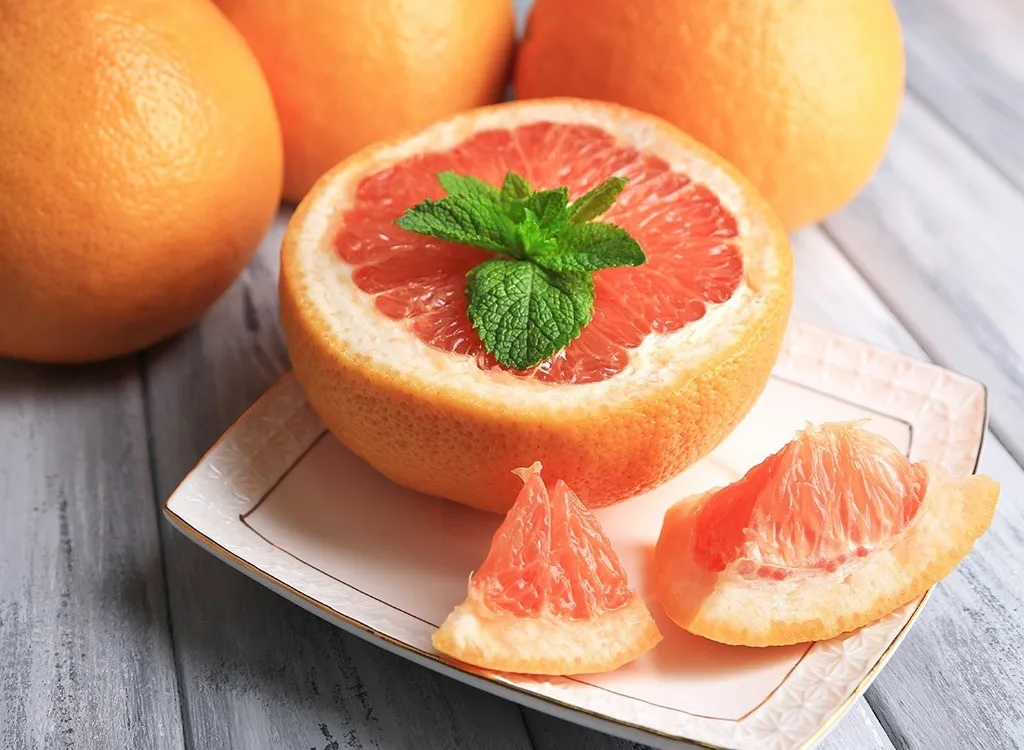
Grapefruit juice can interfere with medications such as for high cholesterol and depression. “You wouldn’t expect grapefruit to be on a list of foods to avoid after 60,” says the National Council on Aging (NCOA). “But the juice of a grapefruit can interfere with medications taken for insomnia, anxiety, and high blood pressure. Other fruits—and fruit juices like orange juice, cranberry juice, and tomato juice consumed in moderation—are a better bet for older adults.”
2
Sugary Drinks

Sugar-packed drinks like sodas, teas, and coffees are bad for your health. “For example, the 16-ounce chai latte at Starbucks, one of its most popular drinks, has 42 grams of sugar,” Amy Gorin, MS, RDN, tells AARP. “Just because a drink says ‘pure’ or ‘green tea’ or ‘honey’ doesn’t mean it has less sugar. Sugar is sugar.”
3
Hidden Sugars
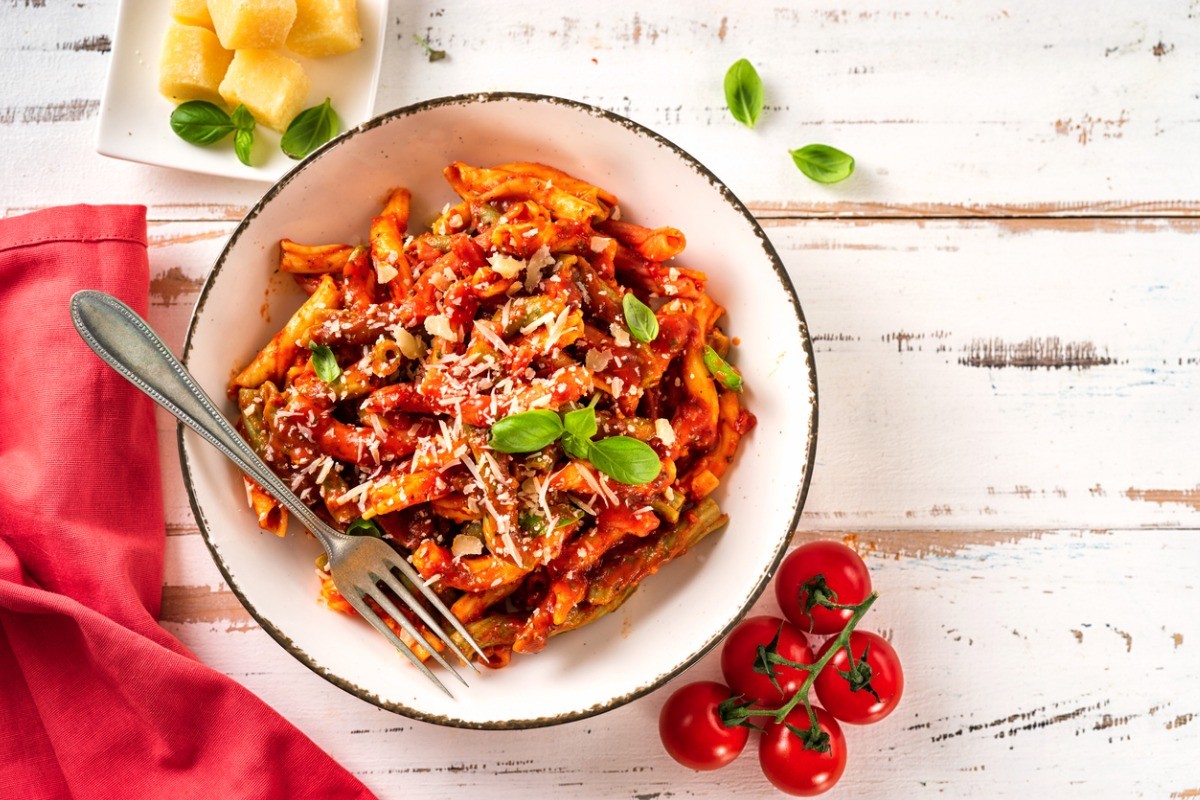
And don’t forget about hidden sugars, for example in breads and pasta sauces. “Hidden sugars can be found in pasta sauces, yogurt, granola bars, instant oatmeal packets and breakfast cereals,” Nancy Farrell Allen, a spokesperson for the Academy of Nutrition and Dietetics, tells AARP. “Excess sugar can put stress on organs such as the pancreas and liver,” Allen says, “which can increase blood sugar and blood triglyceride levels and raise the risk of fatty liver disease.”
4
Diet Drinks
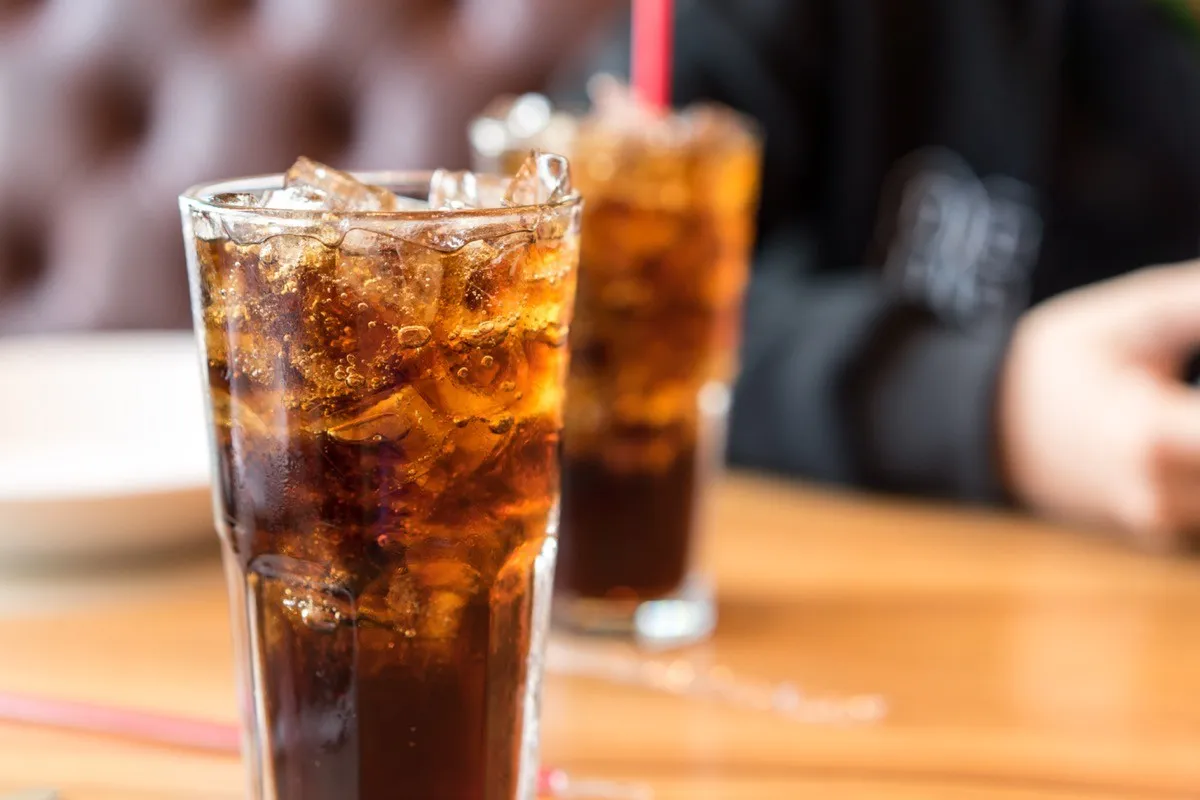
Seniors should avoid sodas packed with artificial sweeteners. “Over the last few years, researchers have linked diet soft drinks to everything from obesity to sugar cravings to depression,” according to Bethesda Health. “But a recent study in the Journal of General Internal Medicine suggests that routinely drinking these artificially sweetened soft drinks may do even more serious damage: they could increase your risk of vascular events like a heart attack or stroke.”
RELATED: The Most Walkable U.S. Cities for seniors.
5
Undercooked Eggs
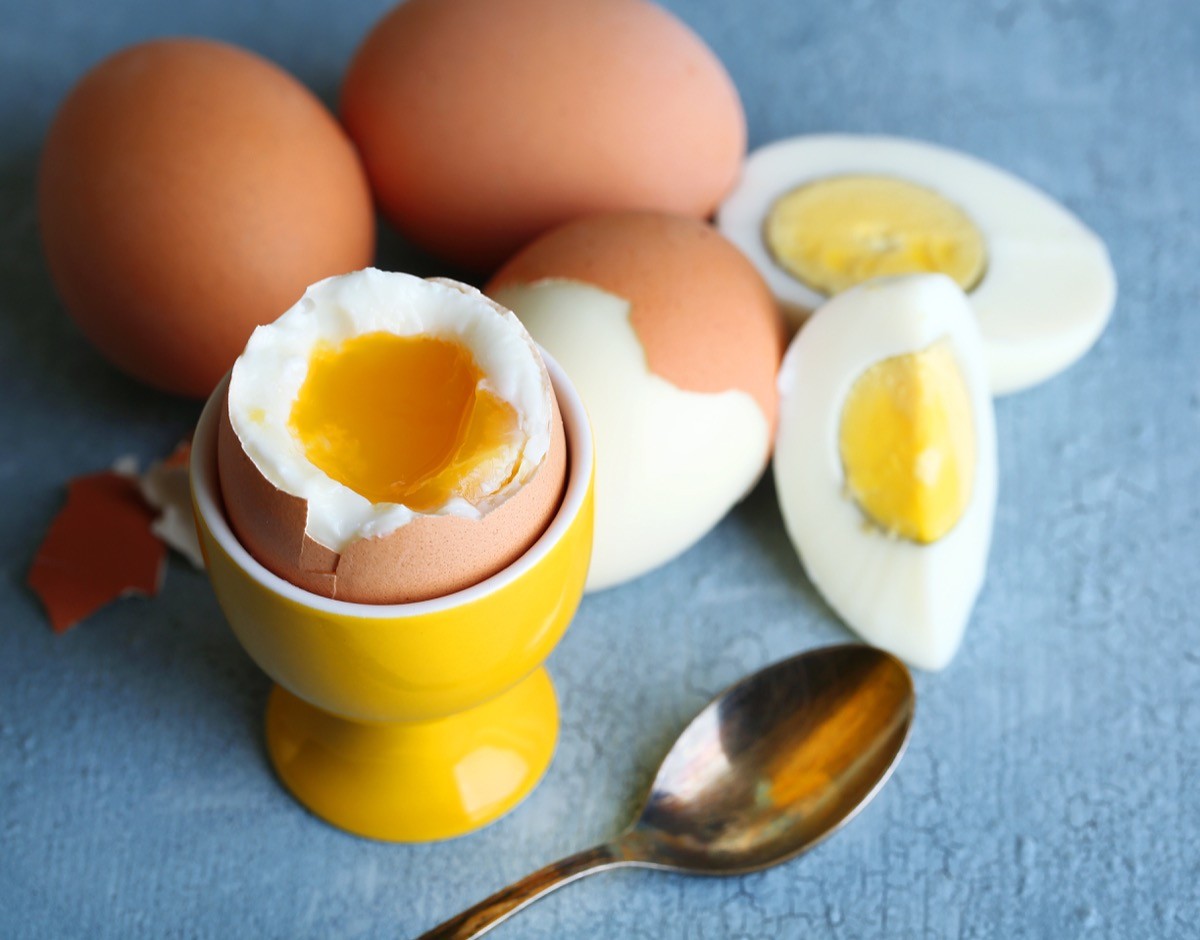
Seniors should be careful about undercooked eggs, experts say. “Undercooked foods such as eggs, meat, poultry and sushi can cause food poisoning, which can trigger sepsis and septic shock,” according to Sun Health Communities. “Although anyone can develop infection and sepsis, seniors are at higher risk.”
6
Sweetened Yogurt
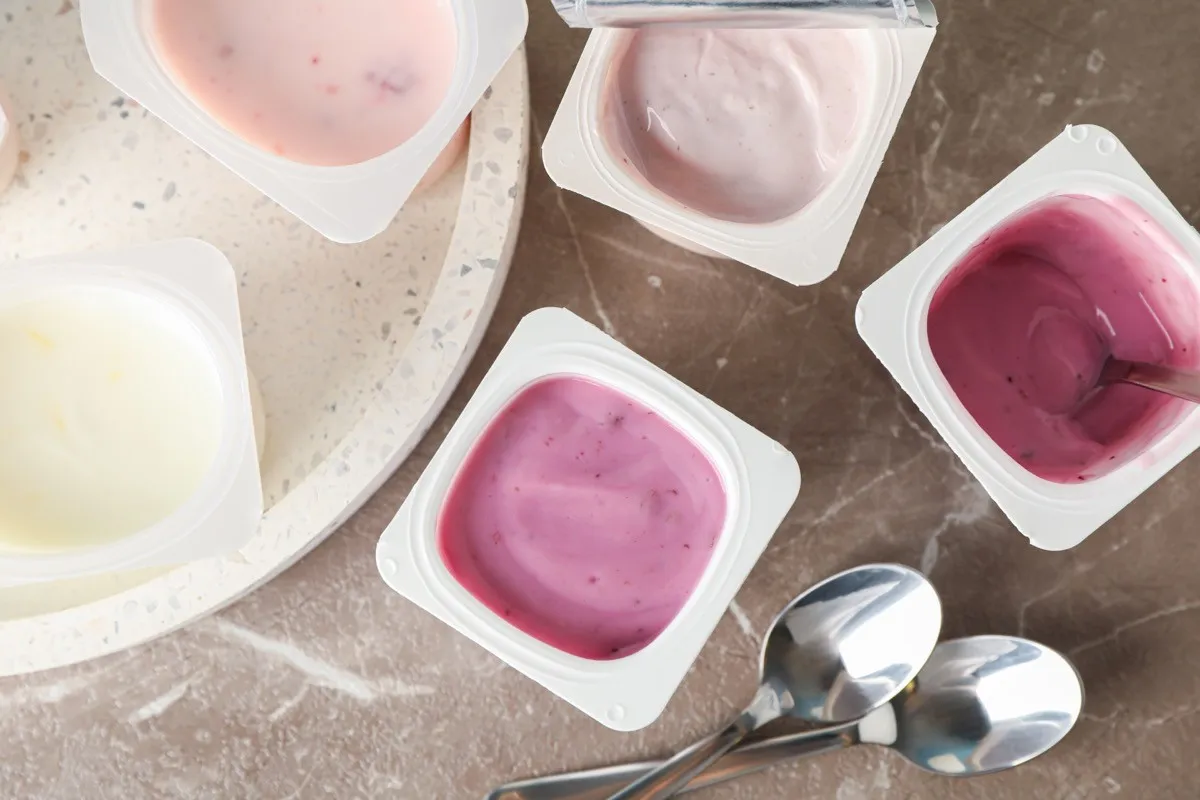
Sugary yogurt can negatively impact your health. “Plain yogurt is actually good for you, especially Greek yogurt, which is higher in protein and lower in fat,” Colleen Christmas, MD, a geriatrics physician and associate professor of medicine at Johns Hopkins, tells AARP. “For women who need a little extra calcium and vitamin D, [it’s a ] good way to get [both ] into your bones. But when it’s sweetened, you’ve [taken ] a really healthy food and made it unhealthy.”
7
Deli Meats

Many deli meats are loaded with sodium and additives. “If people want to have deli meat, they should choose a low-sodium option or get meat that is freshly cut from the deli,” registered dietitian Alyssa Smolen tells AARP. “If they’re looking at the nutrition label, it should say less than 5 percent of the daily sodium — that’s going to be a good option.”
8
Too Much Caffeine
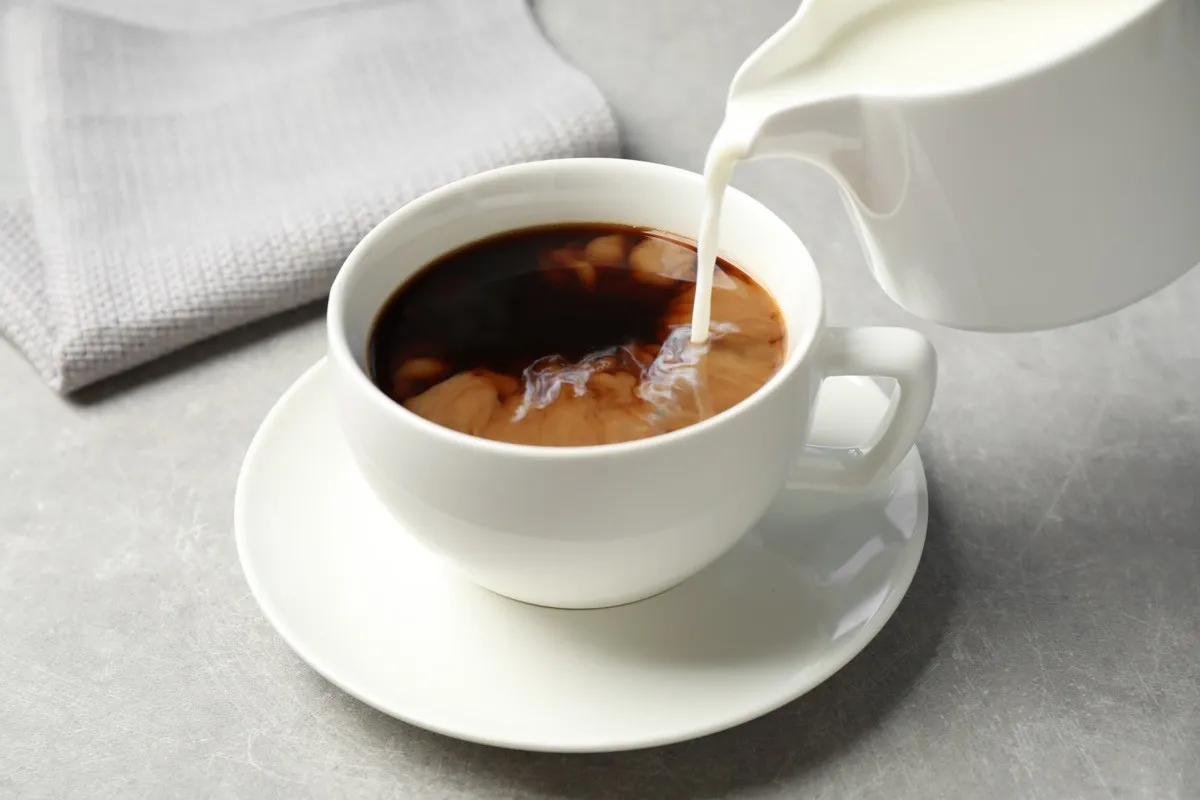
Too much caffeine is particularly dangerous for seniors. “Caffeine not only keeps many people from getting a good night’s sleep, it may increase anxiety and make your heart beat more quickly or irregularly,” says Sun Health Communities. “This could be dangerous if you have a heart condition. Aside from coffee, caffeine is also found in many teas, some sodas, chocolate and even some medications, including over-the-counter painkillers.”
RELATED: 6 Warning Signs of Scams Targeting seniors.
9
Fried Foods
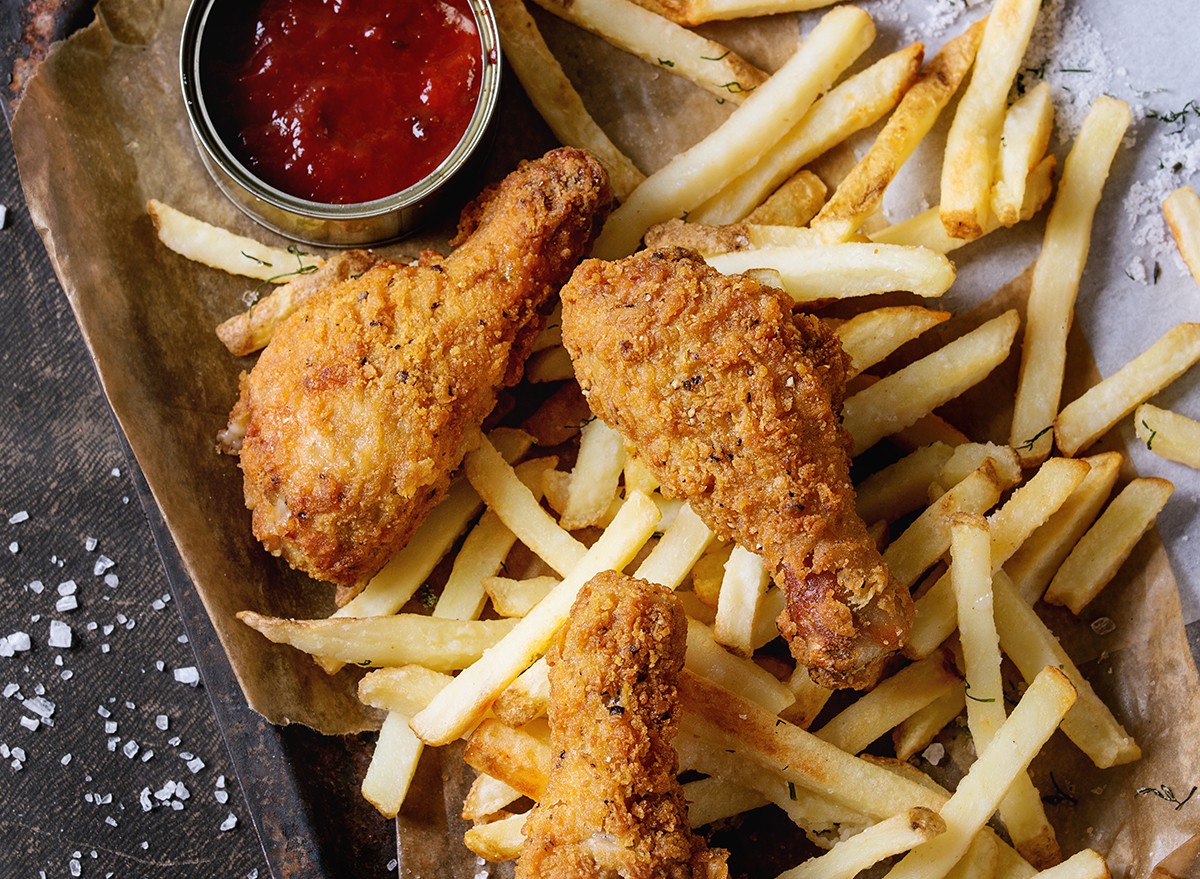
Everyone should be careful about their intake of fried foods, but seniors are especially vulnerable to the negative impact these foods have on health. “Fried fare is typically high in trans fats, hydrogenated oils, and tropical oils, which raise cholesterol and are linked to heart disease, diabetes, and cancer,” says the NCOA. “They’re also often loaded with calories, which can lead to increased calorie intake, weight gain, and obesity.”
10
Too Much Sodium
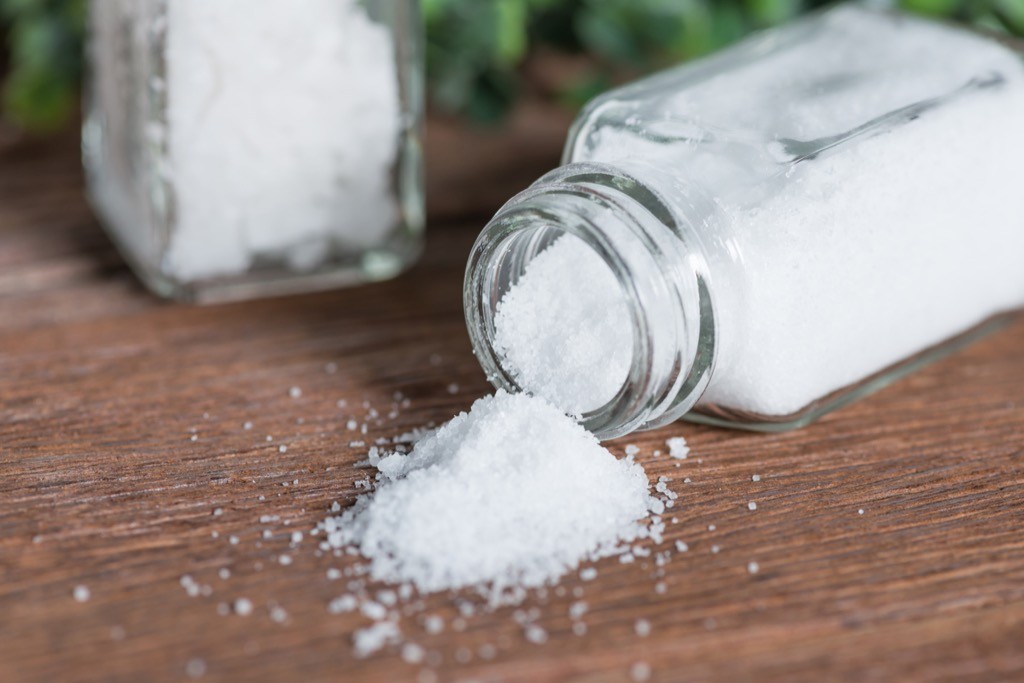
“A diet that’s high in sodium can cause your body to retain too much fluid, resulting in high blood pressure and a greater risk of heart disease, stroke, and kidney disease,” says the NCOA. “The American Heart Association recommends no more than 1,500 mg of sodium per day for most adults, especially those with hypertension.”
11
Boil In the Bag Rice

Foods designed to be heated in plastic should be avoided. “When food is wrapped in plastic or placed in a plastic container and microwaved, substances used in manufacturing the plastic (plasticizers) may leak into the food. In particular, fatty foods such as meats and cheeses cause a chemical called diethylhexyl adipate to leach out of the plastic,” according to Harvard Health.
12
Raw Shellfish
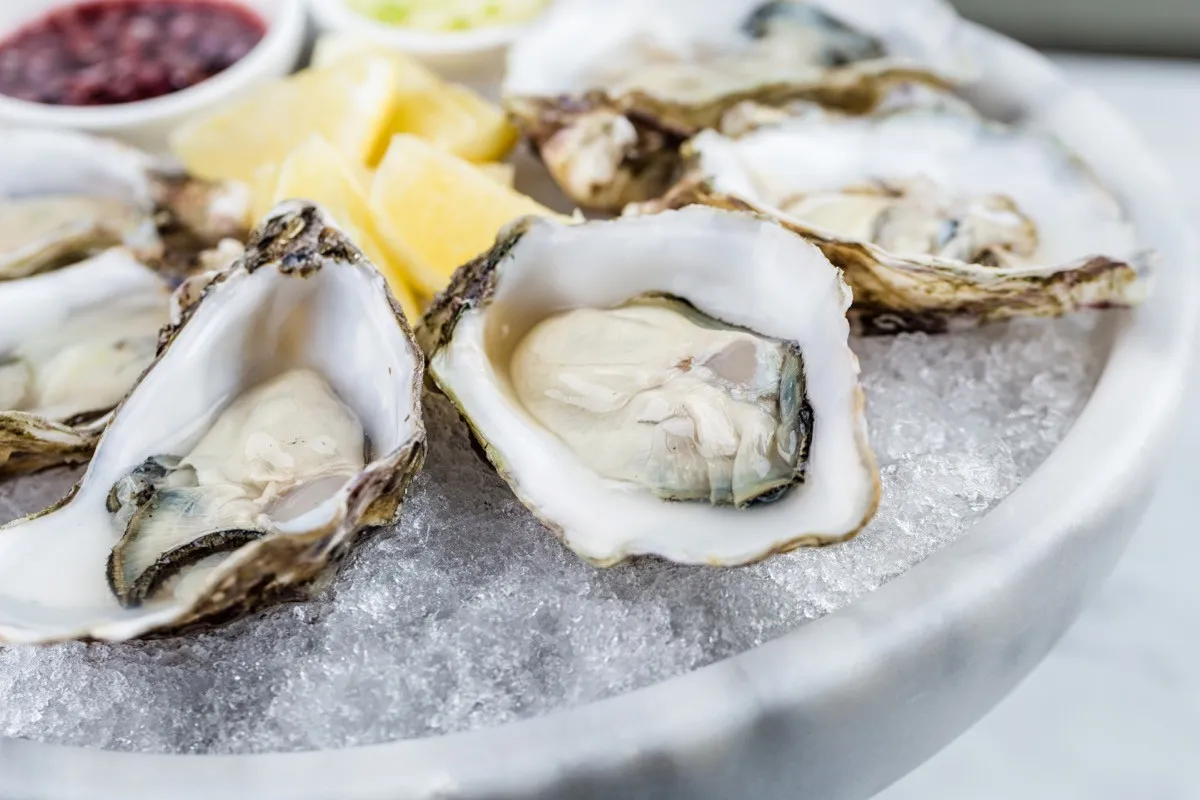
Give the raw oysters a miss. “To reduce risks of illness from bacteria in food, persons at risk are advised not to eat raw fish and shellfish, raw or unpasteurized milk or cheese, soft cheeses, raw or lightly cooked egg or egg products, raw meat or poultry, raw sprouts, or unpasteurized fruit or vegetable juices,” says the USDA.
RELATED: 10 Technology Tips for seniors.
13
Ultra-Processed Foods
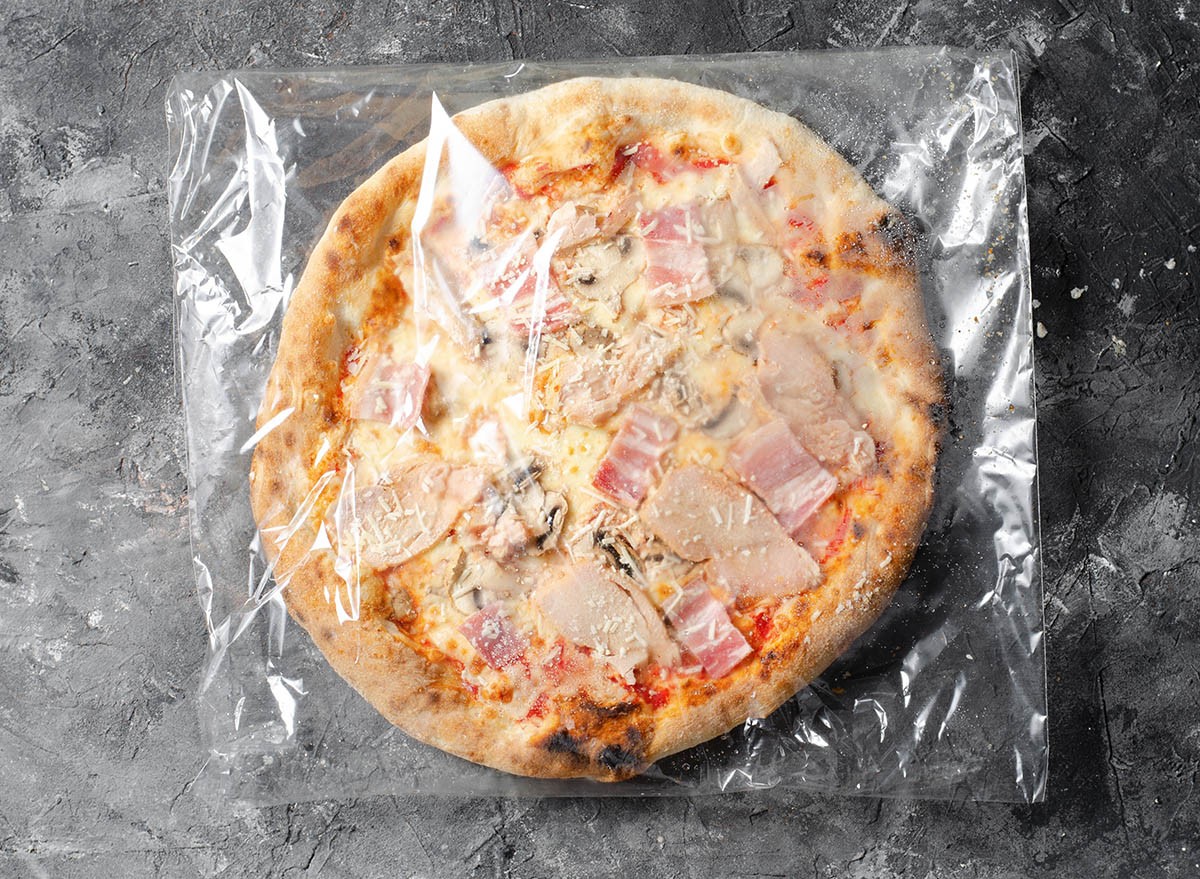
Ultra-processed foods like frozen pizza are linked to many health issues including a higher risk of dementia. “One alternative to frozen pizza is ordering a pie from your local fresh-made pizza shop,” registered dietitian Jordan Hill tells AARP. Or, “if you want to get adventurous and make your own, your grocery store bakery sells fresh dough. Add your sauce and desired toppings, and bake for 18 to 25 minutes at 400 degrees.”
14
Canned Soup
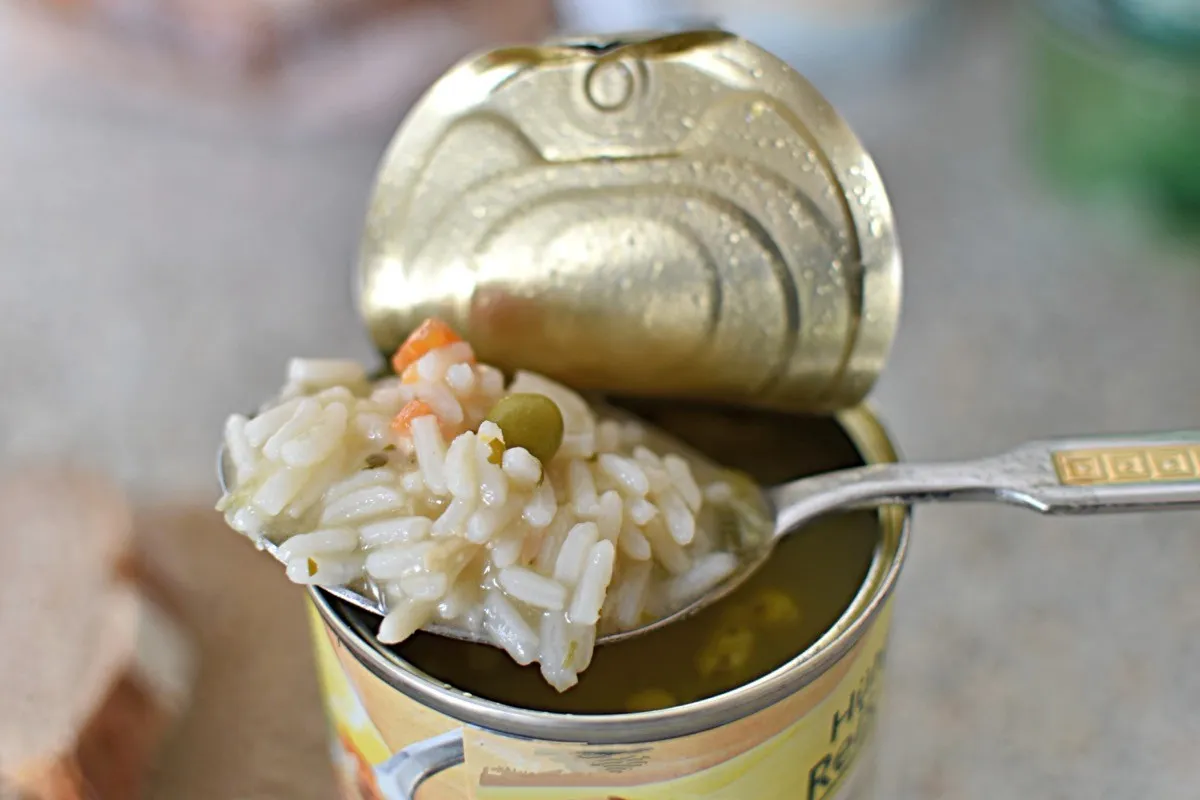
Not all canned soup is bad for you, but check the label for sodium and unhealthy additives. “People love soup, but it has a day-plus of sodium in one cup,” Dr. Shah says. “And sodium is a really important thing to pay attention to if you have congestive heart failure, prior heart attacks or have stiffening of the heart. “
15
Refrigerated Pâté or Meat Spreads
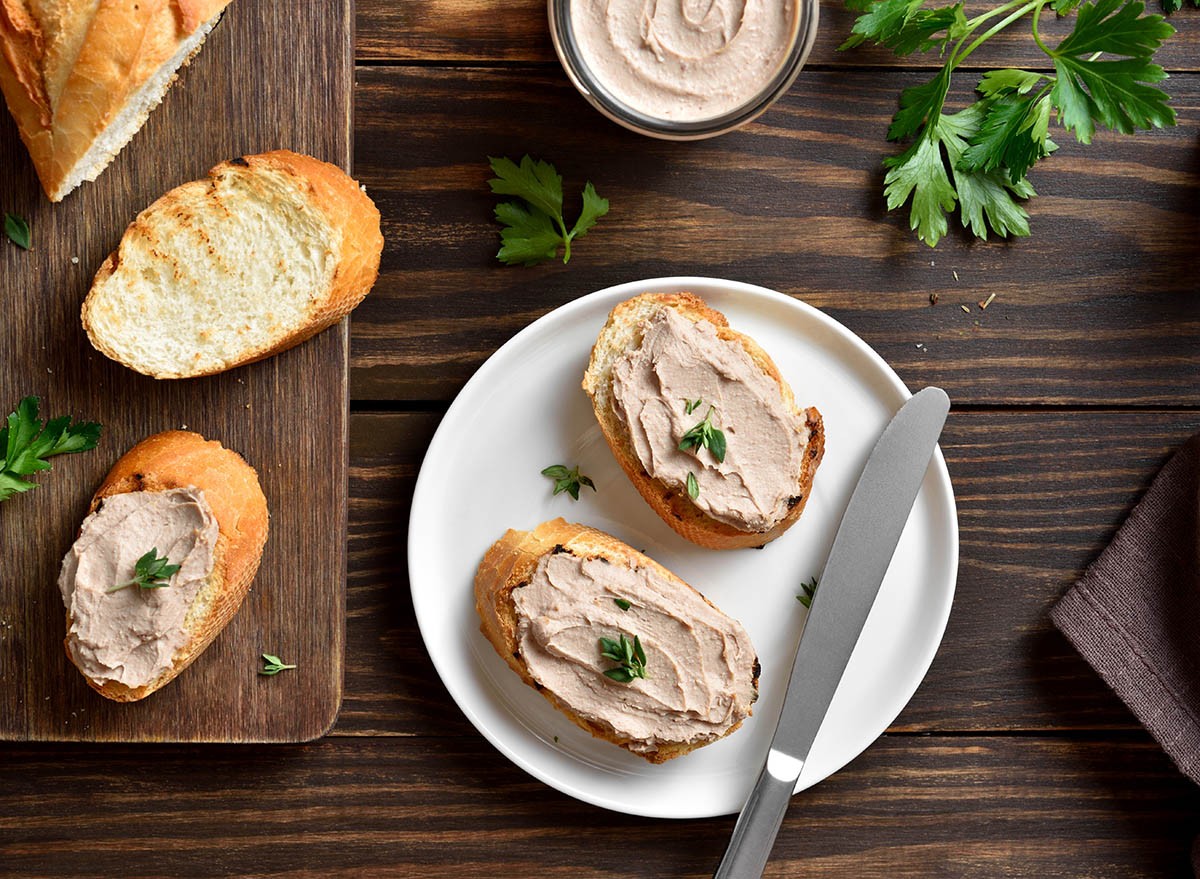
The CDC recommends against refrigerated pâté or meat spreads, and recommends “pâté or meat spreads in sealed, airtight containers that don’t need to be kept refrigerated before opening”. Raw or undercooked sprouts, such as alfalfa and bean, should also be avoided.